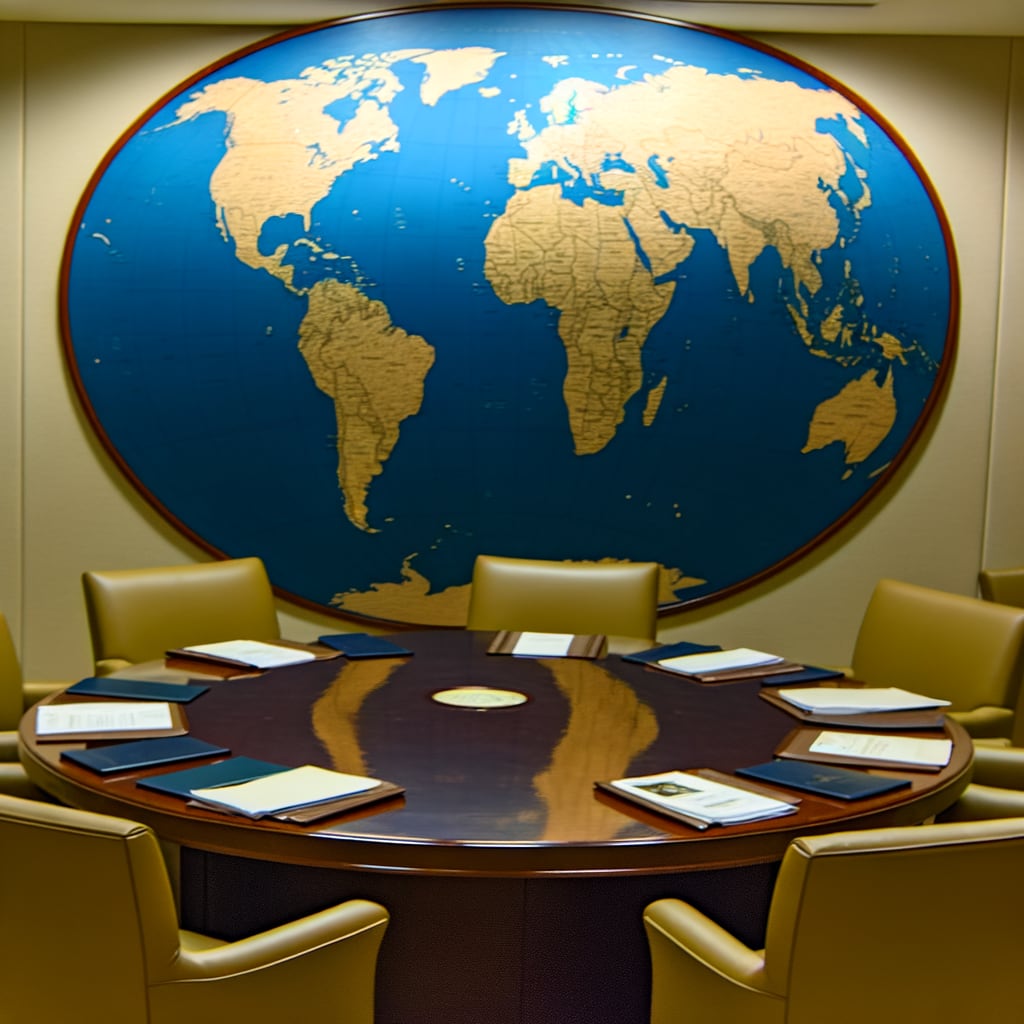US Holds Secret Peace Talks with Russia and Ukraine in Abu Dhabi
In a concerted effort to resolve the ongoing Ukraine conflict, US Army Secretary Daniel Driscoll has reportedly held secret peace talks with Russian and Ukrainian delegations in Abu Dhabi. Driscoll, who was also in Geneva over the weekend for talks with a Ukrainian delegation, presented a US-drafted peace plan in these meetings. According to multiple sources, the process is still ongoing with the aim of achieving a substantial diplomatic resolution.
Background and Context
The peace talks are part of the Trump administration's attempts to push through a peace deal to end the conflict in Ukraine. Driscoll, the youngest-ever US Army Secretary, has been thrust into the spotlight as the face of these renewed efforts. The talks follow negotiations in Geneva between Washington and Kiev, where the two sides reviewed the proposed peace plan.
Key Developments
The peace talks, initiated on November 19, have seen Driscoll shuttle between Russian and Ukrainian delegations in Abu Dhabi. The peace plan reportedly involves significant concessions from Ukraine, including a cut to Kyiv’s military size that has raised apprehensions across Europe. Sources indicate that Driscoll delivered a strict message to Ukraine and Europe, insisting they accept the 28-point plan.
Reports suggest that the tone of the meeting in Kiev was tense, and an ultimatum was issued to Ukraine to sign the peace plan by Thursday. The Trump administration, through Driscoll, relayed the details of the US proposal to settle the conflict between Russia and Ukraine to EU and UK ambassadors and other officials.
The talks have been characterized by secrecy, with the composition of both the US and Russian delegations remaining unclear. However, a source told CBS that the discussions were geared towards moving the peace negotiations forward.
Implications and Reactions
The peace plan and the manner of its presentation have sparked varying reactions. Ukrainian Parliament Speaker Ruslan Stefanchuk reiterated Ukraine's 'red lines,' stating that the country will never legally recognize the Russian occupation or accept restrictions on its army size or alliances.
European leaders and other allies said the US peace plan for Ukraine needed “additional work.” They issued a statement at the Group of 20 summit in South Africa, expressing their concerns over the proposed plan and the speed at which the US administration is pushing for its acceptance.
President Donald Trump has remained optimistic about the progress made over the past week. He stated that he would not meet with Russian President Vladimir Putin or Ukrainian President Volodymyr Zelenskyy until the peace agreement is either complete or in its final stage.
Conclusion
As the talks progress, the situation remains fluid. The conflict in Ukraine, which has been a longstanding geopolitical issue, is at a critical juncture. The outcomes of these talks and the acceptance or rejection of the proposed peace plan could significantly shape the future of Ukraine and its relations with Russia and the US.

